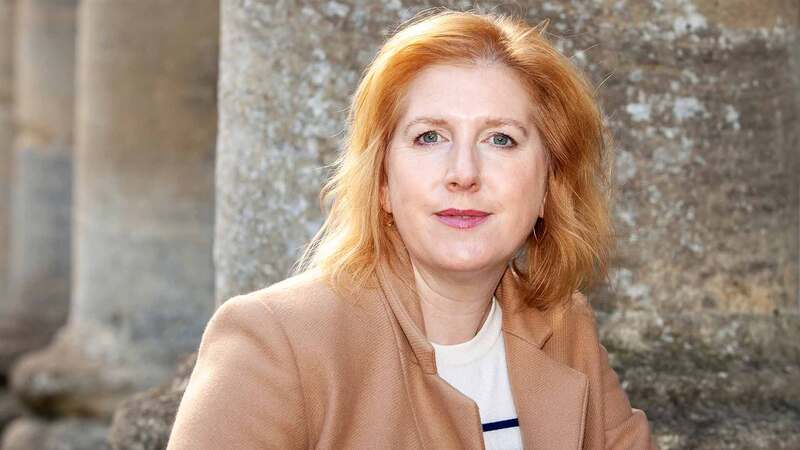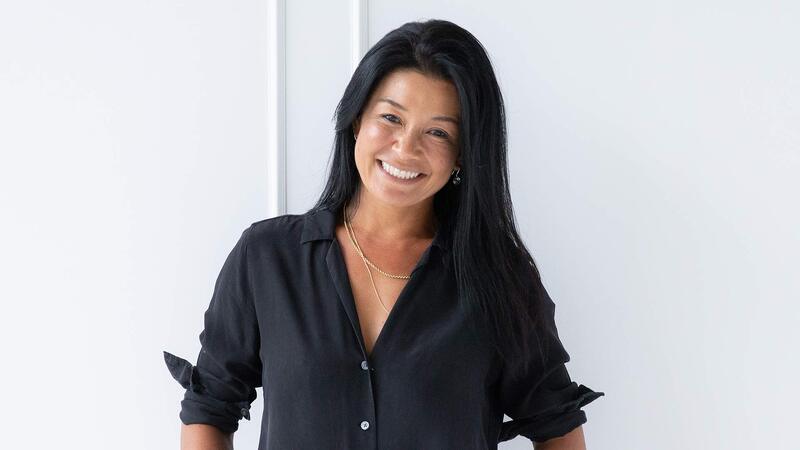You are viewing your 1 free article this month. Login to read more articles.
Bookseller survey finds debut authors struggle with lack of support
More than half of authors (54%) responding to a survey by The Bookseller on their experiences of publishing their debut book have said the process negatively affected their mental health. Though views were mixed, just 22% of the 108 respondents to the survey described a positive experience overall with their first publication.
Of the survey’s respondents, 61% primarily wrote adult fiction, followed by 19% non-fiction and 17% children’s fiction. Around half of respondents (51%) had been published by an independent publisher while 48% were published by one of the Big Four (Penguin Random House, HarperCollins, Pan Macmillan and Hachette). The remaining 1% selected “other” and were a mix of self-published authors and “hybrid publishing”.
Of those who described a negative impact on their mental health 47% were published by an independent publisher while 44% were published by one of the Big Four with the remaining 9% citing “other”.
Among the majority who said they had a negative experience of debut publication, anxiety, stress, depression and "lowered" self-esteem were cited, with lack of support, guidance or clear and professional communication from their publisher among the factors that contributed.
One respondent noted: “I’ve been exhausted and anxious since about two months before publication until now, about a year on. I have developed quite severe anxiety, for which I am now taking medication." Another respondent, published by one of the Big Four, said: “It has taken me a long time to reconcile the train wreck of my debut. I had to work hard to recover from it, both professionally and mentally.”
Conversely, among the smaller percentages whose experiences were positive, Rosemary J Brown, who released Following Nellie Bly: Her Record-Breaking Race Around the World (Pen & Sword), described the process as a “great collaboration” and said she felt “relief and pride” on publication. Meanwhile, children’s author Susan Brownrigg, who has published multiple titles with UCLan, said: “I spent many years trying to find a publisher, so when I finally was offered a contract it was a real boost to my confidence and affirmation that my perseverance had been worthwhile. My publisher is small and northern and I have a really good relationship with them.”
Of those who cited a positive impact on their mental health, or no impact on their mental health, 48% were published by an independent, 42% were published by one of the Big Four and 9% selected “other”.
Publication day
When asked how publication day compared to expectations, some had positive recollections — a fiction author who has published with one of the Big Four described "a lovely launch in Waterstones attended by friends and family, editor and agent. The day itself was great”.
However, others described it as "a total wasteland". A writer in children’s fiction said: “You have expectations about what publication day will be like, but in reality, nothing really happens. Your book isn’t necessarily in local shops. So, what you imagine is an amazing day full of a sense of accomplishment just passes like any other. It can leave you feeling very flat.”
Of those who mentioned a launch, just under half organised their own. One said: “A book launch wasn’t encouraged, though they [the publisher] did offer to pay for wine if I organised my own.” Another commented: “I had a reasonable advance – more than I expected and it felt like a big moment, so I organised my own launch party and printed my own bookmarks. The editors came and did give a lovely speech, but everyone assumed they had paid for the launch, and they’d done the bookmarks.”
A children’s fiction author who published with an indie press commented: “There was a really well attended launch party, arranged by [the] publisher.” However, they added: “There was some press coverage in titles suggested by me but not much else in the way of promotion (that was visible to me). There was a school visit (unpaid) close to the launch date, arranged by the publisher. Nobody from the publisher accompanied me and I had no guidance on what to include, I just had to make it up for myself.”
Author Rebecca Zahabi, who has published several SFF titles with Gollancz, said getting a book deal was "a huge step forward and a big self confidence boost" but added that she had hoped for more training in the run-up to her first publication day: “I expected a lot more support – for example, a public speaking workshop, help in public reading and addressing audiences. As it was, I was booked in for two events but not given much information about them beforehand.”
A children’s fiction author, published by an indie, echoed this: “I remember crying as I didn’t know how to make good author videos – I didn’t have the right tech or the right training.”
Communication
Many respondents mentioned poor communication between themselves and their publishers. “I expected the author/publisher relationship to feel like a business partnership. Instead it felt like a parent/child relationship with a lot of gaslighting and fake conversations," said one author, published by one of the Big Four.
Another author said: “I was shocked by the lack of clarity and shared information and the cynicism that underlies the superficial charm of this industry.” Similarly, a third writer observed: “Often I’d ask clear questions but receive opaque answers wrapped in praise and flattery, which felt a bit infantilising."
A children’s fiction author said publishers should “set realistic expectations up front: ‘what can an author expect of the publication process and what can be expected of them?’”
Another writer – who said they had been “retraumatised” during the process of writing their memoir – suggested that mental health support should be covered by publishers. They said: “I think I spent the majority of my book advance on therapy to deal with the treatment I endured. Being given clear communication, or a dedicated member of staff to speak to, would also have been helpful. There was a lot of Googling of staff directories to try and work out who might actually provide assistance.”
Brownrigg was in a minority in describing her publisher, UCLan, as "very approachable and responsive".
Experiences post-debut
Of the 105 authors who responded to the question ‘How long after the publication of your debut did your publisher continue to support you?’, just under half (48%) said their publisher supported them for less than a year. One response read: “I got no support and felt like a commodity, like the team had moved on completely to the next book.”
Another said: “There was no support after publication, The book got a handful of great reviews, but they were never sent to me – I found them myself.”
A number of respondents (25), however, said they had maintained contact with their publishers for a year or more after the release of their debut, with many describing a positive working relationship. One said: “My publisher still continues to support me, even though it’s been several years since my debut, and a while since my last release. I’m with a small digital-first imprint at a Big Four publisher, and even though their main focus is, naturally, on frontlist, they do a lot for backlist books too. I love my imprint!”
Another said: “I am in the process of launching my fifth book and I am still supported by my publisher. I have a very demanding day job and I could not ask for a more understanding team; they make my ‘other job’ – writing – possible and I absolutely could not do it without them.”
However, six authors – debut and otherwise – cited being dropped by their publisher, some with no explanation. One respondent, a children’s fiction writer whose debut was published by an indie press, said: “There was not a huge amount of support to begin with and it dwindled to no support very quickly after launch. They declined to publish the sequel, although the book was originally listed as the first in a series.”
Another respondent – who published two fiction titles with an indie press – said: "I had another book in a two-book deal, so there was contact in terms of that. Now and again I would find out some figures if my agent pushed, but still I had no sense of how valued I was, or otherwise. Then after the two-book deal, I was dropped with no real explanation and unexpectedly. It is therefore quite hard to look back with positivity!”
Among authors contracted to write more than one book, many cited dwindling support and communication from their publishers post-debut. A children’s author, who previously published with one of the Big Four houses, said their imprint “arranged occasional school visits and events (almost all unpaid) for around a year. I had a three-book deal but by the time the third came out 18 months after the first it didn’t even merit a congratulations emoji on Twitter. It’s at that point you realise you’re not shifting enough books and slink off to a corner to die of shame (and weep over your crippling overdraft) before being dropped."
A fiction author who currently works with one of the Big Four echoed this. They said: “I’m on my third book with my publisher, waiting to bring out the fourth, and with each release their support dwindles even more.”
Agents
Some respondents mentioned how important it felt to have an agent as a supportive voice, with one author citing how their agent had to step in to involve an issue with printing. “I would find out some [sales] figures if my agent pushed,” wrote one author. They added: “On the positive side, my agent has been very supportive.”
One writer explained: “As I did not have an agent at the time and my editor and publisher were busy, I felt I had no one on my side throughout this process to help support and guide me.”
However, of those respondents who wrote about their agent, many reported a negative relationship. One respondent said: “I had no support or engagement from my agent and my publicist did very little.” Another respondent cited a similar experience: “My publisher continues to support me after publication. My agent is a different matter altogether. I feel agents seem to have the most to say about many issues in publishing yet do very little to protect their writers.”
One author wrote: “Unlike my agent, who had rather broken my heart with big promises that never materialised, the publisher kept things realistic.”
Staff turnover
Of the 105 authors who responded to the question “How long after the publication of your debut did your publisher continue to support you?”, 9% said the lack of ongoing communication and support was compounded by staff turnover at their publishing house. One of the people surveyed said: “Between final submission and publication, almost everyone involved in my book left the imprint, and the new regime didn’t seem interested.” The respondent added that they felt “hung out to dry” following the publication of their debut.
Another commented: “There was little support after publication, I think they arranged a Bookbub deal a couple of months later and that was it. Not long after that, the contacts I worked with during the publishing process left or were made redundant, so didn’t have any further personal contact with the publisher. They have now taken my book, and many others, out of print.”
Yet another respondent, who published a memoir with an indie press, said: “Within a month of publication my commissioning editor was made redundant, after which I received no support whatsoever from my publisher. I’ve had one conversation with them in the past year, and have heard nothing ahead of the paperback being published in a few weeks’ time.”
When asked about author welfare practices, a spokesperson for Pan Macmillan said: “At Pan Macmillan we publish a broad range of authors and illustrators and we pride ourselves on our tailored approach. For every author or illustrator we put together a bespoke plan based on their book and target audience.
Bridget Shine, chief executive of the Independent Publishers Guild, commented: “Author welfare and satisfaction are top priorities for independent publishers. Many IPG members enjoy very close relationships with their authors, especially in the niches of publishing, and they provide a personal and responsive service that isn’t always possible at bigger companies.
“At the same time, not all smaller publishers will have the in-house resources they would like to devote to every book. Regardless of the budget, it’s important for all contracts and plans between publishers and authors to be open and honest, setting out the responsibilities on both sides at all stages of the publishing and promotional journey. We encourage everyone to follow best practice, and help publishers understand the needs of authors via sessions at our conferences and via the IPG Skills Hub. Publishing works best for both sides when they both have clear plans and realistic expectations of what is achievable.”
Daniel Gorman, director of English PEN, commented: “There can be hidden costs associated with being a published author. Many publishers do excellent work in the much-needed support of authors and this research shows that best practice regarding author care both before and after the publication date is needed across the board to ensure authors really can have the freedom to write.”
HarperCollins, PRH and Hachette did not provide comments for this article.
Reporting by Katie Fraser and Alice Kemp-Habib.




















